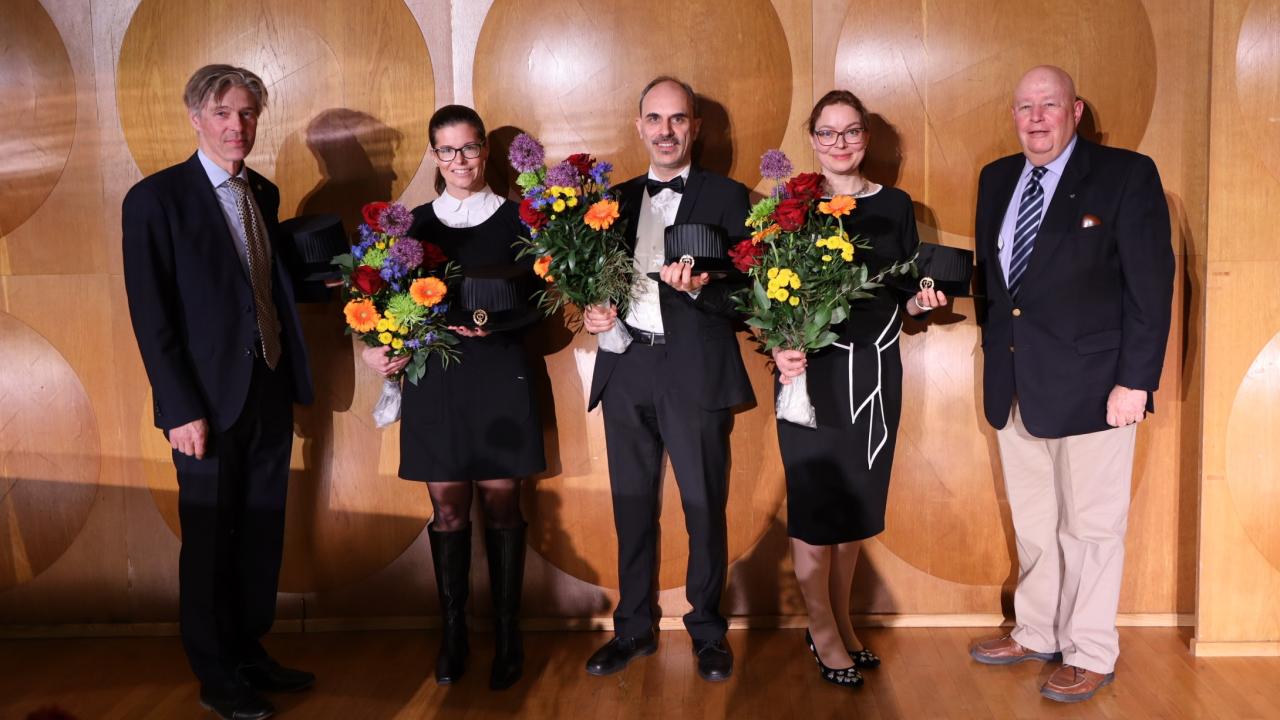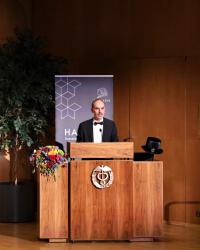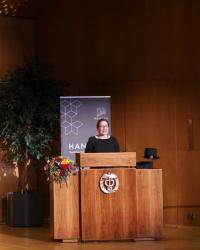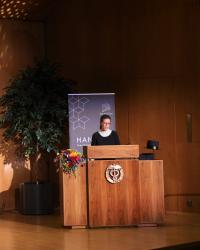Johanna Gummerus: Becoming a professor is hard work, luck, great colleagues, and support!

CSR political or not?
During his career at Hanken, Professor Martin Fougère has discussed the political implications of corporate social responsibility (CSR). The traditional understanding of CSR is that it is not political, yet Fougère states that it is indeed clear that CSR was originally a very political project, launched after the second World War in the United States.
Fougère stated in his inaugural lecture that in the 1990s, CSR was proposed as a global panacea to tackle the grand challenges of sustainable development. It was again driven by large business interest groups arguing for the superiority of business self-regulation over government legislation, at a time when there was a great deal of civil society pressure for stronger regulation of business conduct.
In 2011 the EU Commission redefined CSR as the responsibility of enterprises for their impacts on society. The development of social media at around the same time gave small watchdog organisations the means to both network and publicise some of their findings. This led to enterprises realising the necessity of public corporate response.
“Today many CSR processes have become subject to not only soft law but also national and regional legislation. With three colleagues from Hanken, we have studied the Finnish multi-stakeholder coalition Ykkösketjuun, which lobbied successfully for the inclusion of a Finnish law on human rights due diligence in the Finnish governmental programme. This is an example of collective action that is clearly political,” Fougère sums up.
How can we serve vulnerable consumers better?
Vulnerability can be defined as an experienced state of e.g., financial hardships or physical or mental health concerns. Professor Johanna Gummerus pointed in her speech out that most of us are vulnerable at some stage in our lives and this consumer group needs the attention also of marketers.
Gummerus is at present involved in a research project focusing on parents of children with autism spectrum disorder.
The needs of the children and parents vary but in general they have an elevated need of support.
”This brings us to the role of services and it led us to explore the parents’ experiences of service systems. In our case the service parents enlisted included daycare, education, health, child welfare, and social security systems,” Gummerus explained.
Two important findings arose from the discussions with the parents. The systems are disjointed and difficult to navigate, which means that parents sacrifice a lot of time and effort to secure service for their loved ones. Secondly, families feel their life is stuck since there is great uncertainty as to if the child will ever become an independent adult and therefore they continue to fight for the resources.
Finally Gummerus made a personal reflection on her new office:
“Becoming a professor means for the most of us hard work, perseverance, and a little bit of talent, but also luck, great colleagues and organisational support!
Inclusion a key factor in hybrid work
Digitalisation continues to disrupt the way work is done. According to Professor Jennie Sumelius, remote work and hybrid work are most likely permanent features of work life.
The disconnection of work from time and place has been going on for a long time but accelerated during the pandemic. Existing practices around work need to be reviewed and rethought as the context in which work is carried out changes. Sumelius is working in a research project that studies changes in white-collar work in multinational corporations.
“ The key question is how can we ensure that our people to remain engaged. Employees need to feel included and that they can participate and contribute in spite of the obstacles with remote work”, says Sumelius.
One key obstacle relates to skills and there are differing views of what skills will be most important for white collar workers in the future. Is it problem solving? Or emotional intelligence? Perhaps digital skills? The managers in Sumelius’ study emphasized the importance of self-leadership skills to better deal with the blurred boundaries between work and non-work time.
While the changes in how white-collar work is carried out carries many challenges for HR managers, Sumelius emphasizes the need to address these challenges at multiple levels in order to be able to move towards a socially sustainable future of work.




